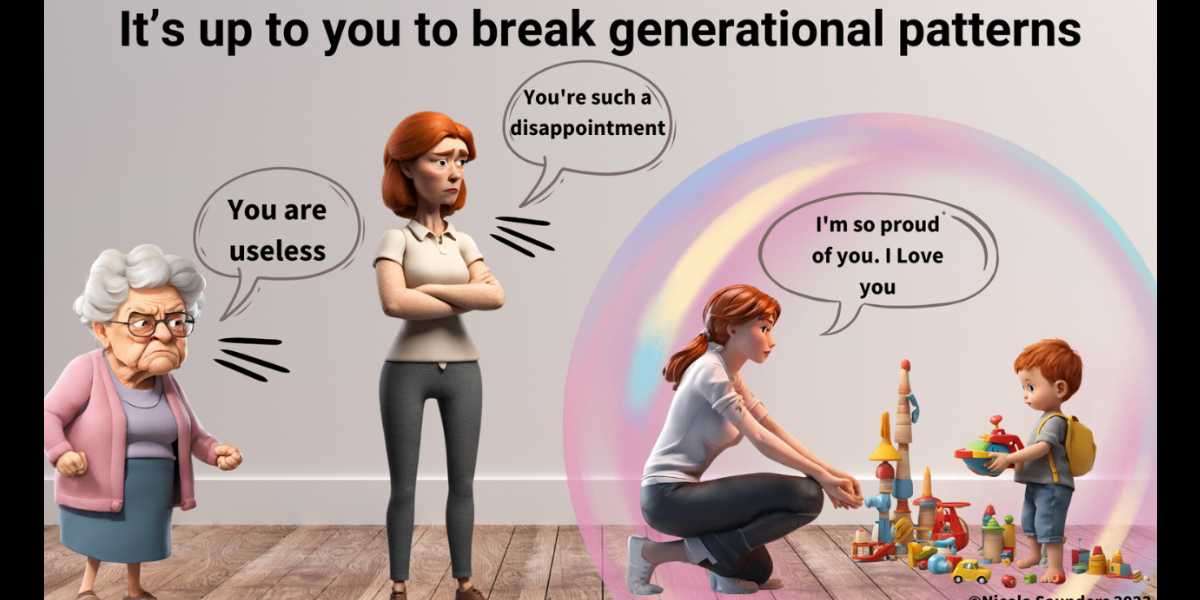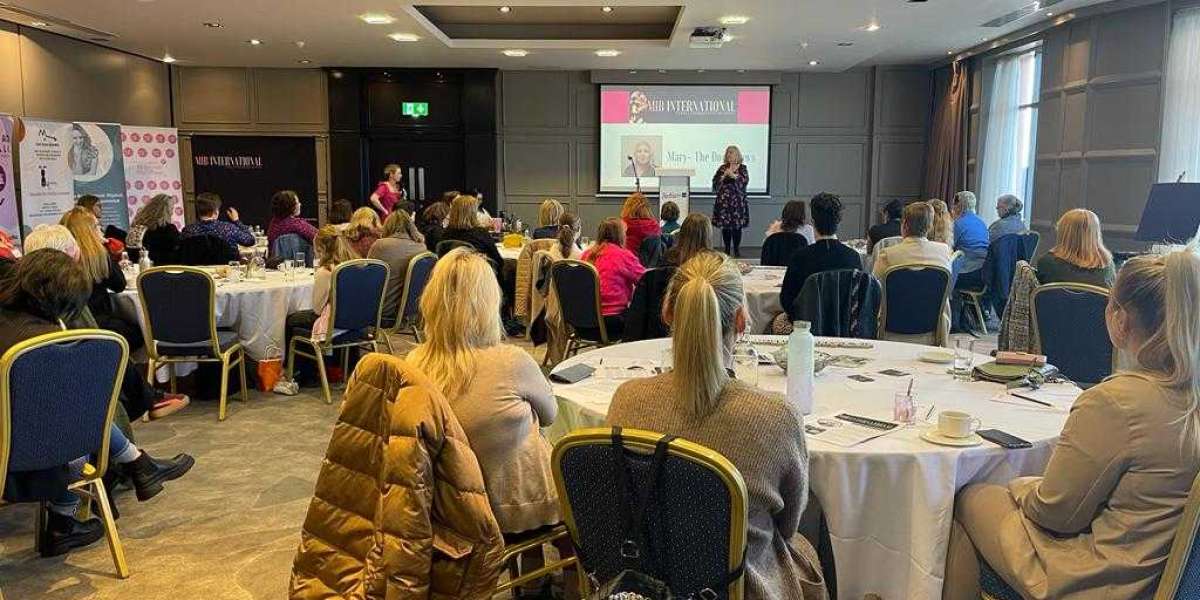Blog 1/4 What are family cycles?
Our family cycles bleed into EVERY area of our lives, and we don't even realise it.
Did you know that only 30% of our personality is dictated by our genetics? Our environment influences the rest, and our genetic personalities are influenced by our parents, grandparents, great-grandparents, and beyond.
So, let's get down to what family cycles are. This first part gets a little bit sciency and jargony, but bear with me; it will all make sense.
Trauma
It's no secret that the generations that went before us probably experienced more than their fair share of trauma. They experienced world wars, famines, very often poor health and societal norms such as domestic violence, criminality (usually for survival), workhouses and generally poor sanitation.
We now know that trauma can be stored in genes and influences our genomes, which, although this is not our DNA, our genomes influence how our body functions and heals. So, for example, if a person has experienced trauma, they may likely experience higher anxiety, PTSD, etc. As a result, their genomes focus on ensuring that the threat system is on high alert and ready for the next scary thing, as its job is to maintain our survival. So, it may not focus on keeping our immunity nice and strong because all its efforts are focused on environmental survival (this is just one example); therefore, they may get sick more frequently. The impact of this trauma can be passed through the generations. So, for instance, if our great-grandmother experienced trauma and developed increased anxiety, this then may affect multiple areas of her biological system, including the eggs that she was born with (women are born with all of their eggs, so essentially, our eggs can be impacted by our experiences, even before we are pregnant, therefore when an egg is fertilised that embryo/child can be affected by that trauma and so the cycle goes on).
Therefore, her child may have a genetic predisposition to experiencing higher levels of anxiety. This is NOT pre-determined and, therefore, is not a guarantee, but it has been found that there is a link. If, however, great-grandmother had the opportunity to heal from that trauma and stop it in its tracks from filtering through her life or certainly reduce its impact, her offspring are likely to have a better chance of not being blighted by her experiences. Our great-grandmothers often did not have the resources and services available to them that we now have, so we can see why such predispositions may have come to life in the next generation. However, today, we have many forms of support available to us to ensure that we are minimising the ongoing impact of our traumas.
Not that long ago, in the 20th century, many of our ancestors' sole focus in life was SURVIVAL. They did not have the time or inclination to think about how something made them FEEL because this would not provide them food or the resilience to cope with their often challenging lives. Therefore, emotional intelligence, empathy, compassion, and even emotional literacy were severely lacking in these generations. However, they didn't know any different. Everybody was pretty much in the same boat.
We are only talking 80-100 years ago. This is no time at all when we are talking about intergenerational patterns. We may have two, maybe three generations in that period.
After the Second World War, society began to improve and grow. Education became more accessible, the number of children surviving over five vastly increased, and the economy and employment opportunities began to change.
Is it any wonder that our ancestors lacked emotional awareness and the impact of their attitudes, behaviours, and beliefs on the next generation? After all, they may have had only their own experiences and maybe a book to support them on their parenting journey.
However, as a society, we continue to repeat some of our generational patterns and trauma due to not joining the dots and recognising that the patterns within our families are no longer fit or even needed for today's generation.
I am writing this blog in 2024 from a place of reflection and understanding of our ancestors' limitations. I am writing this now because, in twenty, thirty, or forty years, future generations will not afford us the same understanding and compassion. After all, we have so much more information to support us in raising our children.
So, what are Family Cycles?
Essentially, they are a set of rules by which each family lives. They decide what is OK and what is not and teach the next generation a version of those rules.
Family patterns/cycles are often steeped in our subconscious. Our parents upload what I call their data to us, a bit like a computer. Parents teach us how to think, how to behave, and how to feel. Under the umbrella of all of these, there are often thousands of subconscious pieces of data we have picked up from our parents, and we may ignore some but repeat many. Some examples are we learn what it is to be a woman, what it is to be a man, and what relationships look like.
We then potter off into the world with this data and live our lives. As we grow, we may find ourselves confused as to 'why we do certain things' (like choosing the same sort of person as a partner - See my blog 'Myth or Fact - We marry a version of our mother or father') and 'why we feel certain ways' (why we get triggered by X when our friends don't) and are unsure why others seem to be doing life so differently or even why others have different opportunities to us.
Family patterns show up in many ways; they are shaped by our experiences and the information our parents and society have provided us about who we are and the world. This information shapes our views and beliefs in all areas of life, such as manners, discipline, work ethic, relationship styles, respect, how we communicate with others, parenting, how we view ourselves, our views on religion or even criminality, and these are just the tip of the iceberg.
If a child is 'shy,' we may assume they were born shy. However, if we explore a little, this may be a result of several factors. Maybe mum is more timid and deemed shy, or perhaps somebody has always spoken for the child, like a parent or sibling. This can be a sign that a child has experienced incredible nurture; however, nurture alone doesn't necessarily provide children with the foundational needs to thrive in adulthood.
When children receive a label (naughty, shy, rebellious, perfect), they can become that label, which can continue throughout their adult lives. This can, in turn, impact how they show up in the world, how people treat them and how they treat others.
We know that if we look at families that experience domestic violence, very often domestic violence is littered throughout not only their extended family but also goes back generations.
It was not uncommon for domestic violence to be the norm in previous generations, to the point that it didn't become a criminal offence until 1976. So, it is clear why the domestic violence rates are so high in the UK, but breaking those cycles (which is essentially changing the narrative that DV is acceptable and OK) is essential if we want to ensure that our sons and daughters are not experiencing the same tragedy that their parents and grandparents faced.
This can also be seen in the criminal justice system, where prison officers report seeing several generations of one family entering the prison system. Family Cycles are prevalent in every family; as parents, we need to establish what our family cycles are and whether or not we want to repeat them.
This is just one example, but it is an obvious example. It's recognising that this may not be your family experience, but our programming has multiple layers, some of which are more visible than others. Hence, our programming is steeped in our unconscious but plays out in everything we do.
If you are reading this and would like to get started on uncovering your family patterns, then ask yourself the following:
What are my parent's views on table manners?
Am I repeating this with my children, or am I doing something different?
This is a benign example, but it comes down to the things that may or may not matter to you.
For example, if our parents didn't have any strong views on table manners then this may also be something you don't sweat about.
Conversely, if our parents have had very strong views on table manners and, as children, we were repeatedly chastised if we didn't use such manners, we may struggle when we see others with poor manners. Equally, we may want our children to have good table manners. We may not chastise them about their manners; instead, we may coach and guide them on why it's important.
These examples show that something so small can ripple out in multiple ways within our lives and in how we parent our children.
So family patterns are not just about the HUGE topics; they are about the intricacies of who we are and why we are the way we are, and I am by no means saying we should be stripping all of those patterns out and chucking them away, I am simply saying we need to develop an understanding of why they exist and ask ourselves.
Is this what I want for my children? If so, GREAT; if not, how will I change it?
Join me for the next chapter of this series, which I will be sharing with you soon.
'Five reasons why people avoid acknowledging their family cycles'








